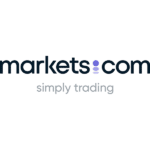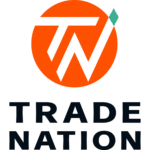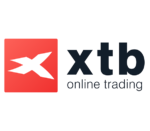Best Forex Brokers in UK 2025
There are a significant number of Forex brokers available to today’s UK Forex trader. Forex trading is always evolving with new Forex brokers emerging all the time, making it difficult for both the UK forex trader and global forex trader to stay up to date and choose from the best Forex brokers. But staying up to date is critical, and choosing from among the best Forex brokers is a key decision for any Forex trader.
How do you choose the correct Forex broker for you, for beginner Forex traders or a professional trade? And what are the the best Forex trading platforms?
Well, from beginner traders to professional traders, we are here to show you how, with our best UK Forex brokers guide for 2025, to discover the most trusted Forex brokers.
The 6 best forex brokers in UK in 2025
The best Forex brokers for one trader may not be the best Forex brokers for another. It depends on your trading style, what you want to trade forex for and your support needs when you start trading forex.
- eToro Forex Broker (FCA regulated)
- AvaTrade Forex Broker
- XTB Forex Broker (FCA regulated)
- ActivTrades Forex Broker (FCA regulated)
- TradeNation Forex Broker (FCA regulated)
- Plus500 CFD Provider (FCA regulated)
See the full toplist here.
But first of all, what is forex trading?
Forex trading, also known as foreign exchange trading, is the process of buying and selling currencies with the aim of making a profit from the fluctuations in their exchange rates. The forex market is the largest and most liquid financial market in the world, where participants trade currencies 24 hours a day, five days a week.
In forex trading, currencies are always traded in pairs. For example, you might trade the EUR/USD pair, which represents the exchange rate between the Euro and the US Dollar. When you trade a currency pair, you are essentially speculating on the relative strength or weakness of one currency against another.
The basic concept of forex trading involves buying a currency pair at a lower price and selling it at a higher price, thus making a profit from the difference in exchange rates. Traders can profit from both rising and falling markets by going long (buying) or going short (selling) a currency pair.
Forex trading takes place through a network of financial institutions, such as banks, brokers, and electronic trading platforms. These platforms provide traders with access to real-time price quotes, charts, and tools to execute trades.
Traders can employ various strategies, including technical analysis, fundamental analysis, and risk management techniques, to make informed trading decisions.
It’s important to note that forex trading carries a certain level of risk, and success in trading requires knowledge, experience, and careful consideration of market conditions.
Many traders also use leverage, which allows them to control larger positions with a smaller amount of capital. However, leverage can amplify both profits and losses, so it should be used with caution.
As with any form of trading or investment, it’s recommended to educate yourself about the forex market, understand the risks involved, and consider seeking advice from professionals before getting started.
And what is a forex broker?
A forex broker is a financial institution or a firm that provides individuals and organizations with access to the forex market, allowing them to trade currencies. Forex brokers act as intermediaries between traders and the interbank market, where the actual exchange of currencies takes place.
Forex Trading Volatility and Opportunities Increasing
The forex trading world in 2025 has seen heightened volatility which brings great opportunities for Forex traders. Surging global commodity prices in 2022 have seen inflation rates in the world’s major economies move aggressively higher, hitting levels not seen in many instances for over 40 years.
These forceful, higher price pressures have seen central banks that have been super dovish for most of the 21st century, shift to an aggressive hawkish stance. This has given rise to greater opportunities when trading Forex.
This hawkish shift by the world’s major central banks has also seen interest rate differentials across the world’s economies widen. Interest rate differentials are one of the primary drivers of Foreign Exchange pricing, meaning Forex markets have been on a wild, volatile ride throughout 2023, with the US Dollar surging to multi-decade highs against nearly all major and Emerging Market currencies. This has made trading Forex all the more interesting and increased the demand for Forex brokers, online brokers and Forex trading platforms.
The combination of the shifting hawkishness of global central banks, the differentials between inflation rates and interest rates amongst the major global economies, and the potential recessions that are coming in 2023, all means that volatility in Forex markets is likely to stay elevated well into 2023 and likely beyond and means that trading Forex is likely to be lucrative.
This means that the current trading opportunities for Forex traders are likely to continue for the months and maybe years ahead, as the Forex market stay volatile, trading Forex stays on trend, and the best Forex brokers will stays in demand.
UK Regulation
Is forex trading legal in the U.K.? the short answer is yes! It is critical to only use a trusted forex broker amongst UK forex brokers. The primary financial markets regulator in UK is the Financial Conduct Authority (FCA). Their operational objectives are to promote competition, protect consumers and protect financial markets.
Forex Brokers accepting UK traders should either be regulated by the FCA or be under some other regulation accepted in the UK. Here you can read more about different European financial regulators and their function. FCA website: Fca.org.uk.
Forex trades and the Forex market come under the Forex trading legal umbrella of FCA when Forex traders or Forex brokers are based in the UK. This is why it should be a consideration to trade with FCA Regulated Forex Brokers.
FCA twitter: @TheFCA
Choose a Forex Broker
Here we review various UK Forex brokers based on regulation, usability, platforms, minimum deposit, spreads, customer support and other criteria to find the best Forex brokers. All forex brokers below accept UK traders and also traders from a number of different countries, although here our focus is on Forex brokers UK and those that accept UK Forex traders.
CFDs are complex instruments and come with a high risk of losing money rapidly due to leverage. Between 65-89% of retail investor accounts lose money when trading CFDs. You should consider whether you can afford to take the high risk of losing your money. fxexplained.co.uk is an affiliated partner with various forex brokers and may be compensated for referred forex traders.
| Broker | Pros | Features | |||
|---|---|---|---|---|---|

Founded: 2007
Reg: FCA, Cy...
HQ: UK, Cyp... 5/5 99/100 |
- Fast withdrawal |
Min. Deposit: $50(value may vary according to region) Pairs Offered: 47 Leverage: 1:30 Trust Score: 99/100 |
Sign Up
61% of retail investor accounts lose money when trading CFDs with this provider. You should consider whether you can afford to take the high risk of losing your money. |
||

Founded: 2018
Reg: SVGFSA ...
HQ: St. Vin... 4.9/5 98/100 |
- Up to 1:200 leverage on crypto assets |
Min. Deposit: 0.001 BTC Pairs Offered: 50+ Leverage: Crypto Max 1:200. Forex Max 1:1000 Withdrawal Process Time: Once a day, between 12:00 and 14:00 UTC Trust Score: 98/100 |
|||

Founded: 2006
Reg: Central...
HQ: Ireland... 4.9/5 97/100 |
- Fast order execution |
Min. Deposit: $100 Pairs Offered: Over 1,000 (all instruments) Leverage: EU - Up to 30:1, Professional Client/ROW up to 400:1 Withdrawal Process Time: 1-2 business days. Trust Score: 97/100 |
Sign Up
76% of retail investor accounts lose money when trading CFDs with this provider. |
||

Founded: 2001
Reg: FCA, CS...
HQ: London,... 4.7/5 94/100 |
- Easy for beginners |
Min. Deposit: $0 Leverage: Trust Score: 94/100 |
Sign Up
81% of retail investor accounts lose money when trading CFDs with this provider. |
||

Founded: 2008
Reg: Plus500...
HQ: Israel... 4.8/5 95/100 |
- Advanced risk management tools |
Min. Deposit: $100 Pairs Offered: 70+ CFDs Leverage: 1:30 Withdrawal Process Time: 1-3 Business Days Trust Score: 95/100 |
Sign Up
80% of retail investor accounts lose money when trading CFDs with this provider. |
||

Founded: 2008
Reg: FCA, AS...
HQ: Cyprus ... 4.7/5 94/100 |
- Beginner Friendly |
Min. Deposit: $100 Pairs Offered: 2,000+ assets, including forex, indices, commodities, shares Leverage: UK/AU/EU - Up to 1:30 Withdrawal Process Time: 24 hours Trust Score: 94/100 |
Sign Up
67,7% of retail investor accounts lose money when trading CFDs with this provider. |
||

Founded: 2014
Reg: FMA, FS...
HQ: New Zea... 4.5/5 90/100 |
- Up to 1:500 leverage |
Min. Deposit: $0 Pairs Offered: 300+ Leverage: Up to 1:500 Withdrawal Process Time: Within 24hrs Trust Score: 90/100 |
|||

Founded: 2020
Reg: FCA, FS...
HQ: UK... 4.8/5 95/100 |
- Tight, fixed spreads (CoreTrader2 only) |
Min. Deposit: $0 Pairs Offered: 26+ Leverage: 200:1 Withdrawal Process Time: 2-5 business days Trust Score: 95/100 |
Sign Up
67.3% of retail investor accounts lose money |
||

Founded: 2002
Reg: FCA, Cy...
HQ: London... 4.6/5 92/100 |
- 24/5 Customer Support |
Min. Deposit: $0 Pairs Offered: 49 Leverage: Up to 1:500 Withdrawal Process Time: 24-48 hours Trust Score: 92/100 |
Sign Up
73% of retail investor accounts lose money when trading CFDs with this provider. |
||
Top 10 Tips for Picking a Forex Broker in UK
Here we look at ten different factors that we believe are of significant importance when you consider choosing a Forex Broker to decide on the best Forex broker when you start trading forex. Whether you are a beginner or advanced trader.
The significance of each will differ depending on your needs, which in turn will depend on your trading style, your knowledge level and your preferred type of online trading platforms. So let’s take a look at what you should be looking at when choosing from the top Forex brokers.
1. Regulation and how trustworthy are they?
You wouldn’t put a large amount of your savings in a bank account if you did not know that the bank was secure and regulated would you? So similarly why would you deposit with an Forex Broker unless you were confident your funds and potential profits are ok?
In the UK, this would mean looking for a broker that is regulated by the Financial Conduct Authority (FCA) to help pick the best Forex broker. In the USA, the equivalent would be a broker regulated by the National Futures Association (NFA) and/or the Commodity Futures Trading Commission (CFTC).
Opening an account with a broker regulated by any of the of the above should allow for protection if you as a depositor/ trader have an issue or grievance with the broker. Check in the top list above to see which top forex brokers that are regulated in UK by the FCA.
One benefit of dealing with a regulated broker in the U.K. is that as a retail client, you are eligible for up to £85,000 in compensation in the extraordinary event of your broker’s insolvency, thanks to the Financial Services Compensation Scheme, or FSCS.
You may also consider a publicly traded Forex broker on the the London Stock Exchange (LSE), for extra trustworthiness. Generally, retail investors trading forex in the UK are entitled to negative balance protection, which means that they will be protected in case the balance on their trading account dips into negative territory
2. Spreads and/ or Commission
Brokers do not provide their services for nothing, so they charge either commission per trade or more likely by the spread between the bid and offer prices for different markets and currency pairs. Forex trading. The wider the spread, effectively the more the trader has to pay to get into and out of each trade. So the narrower the spread, effectively the better off for the trader.
Sometimes brokers offer fixed spreads, but often the spread will be variable depending on the volatility of the market. So for you, trading costs, the best spreads and/ or commissions may mean the best Forex broker
3. Withdrawals and deposits
Most FX Brokers today offer very low requirements to open an account (from as little as £50). Brokers have differing policies with regard to depositing, funding and withdrawals. Are you able to fund the account from a bank account via wire transfer, via credit card, via PayPal.
When withdrawing, is this done via wire transfer, back to your bank account or credit card? Are there any withdrawal fees? Any initial deposit requirements? These are all things you should consider when deciding upon the best Forex broker.
4. Rollover interest (credit/ debit)
Some brokers charge a debit (or give a credit) for daily interest. This would be a consideration for any traders thinking of holding open positions overnight.
5. Margin and Leverage
Many retail CFD accounts and Forex accounts are based on the concept of margin and leverage, with trading accounts offering leveraged trading. Leverage is basically the ability to increase the possible return on an investment or trade.
A margin account allows the trader to use leverage by trading larger amounts than deposited in their forex retail investor accounts This is because only the potential short term losses on the accounts need to be covered, not the full amount of the underlying asset. How much leverage any forex broker offers and the margin requirements may be a consideration when opening an account with a particular forex broker.
6. Types of forex accounts
There are different types of Forex trading accounts which include more traditional cash exchange accounts, for trading currency pairs spread betting type accounts or CFDs (Contracts for Difference).
The choice of which various trading account to open will depend on your very specific needs and potentially even depend on your tax liabilities. For example, with spread betting accounts you may not be liable for capital gains tax. Another key factor when deciding on which is the best Forex broker.
7. What markets can you trade?
All FX brokers in UK offer trading in the major currency pairs, including EURUSD, USDJPY, GBPUSD etc. Most also offer currency cross rates, ability to trade a large selection of currency pairs against each other. You would need to check if they offer trading in your favourite currency pair.
In addition, many brokers offer the opportunity to trade other financial markets and assets. These would include equity indices, government bond markets and commodities (such as oil, gold and copper).
The best Forex broker may need to provide forex and CFDs traders with many global financial markets to trade, alongside the traditional currency pair offered on the trading platform. You may also look for forex platforms that allow trading funds and offer copy trading.
8. Forex trading platforms supported by the broker
Practically all brokers offer a trading platform, whereby the trader can access the various markets available to trade. But which offers the best forex trading platform? Some brokers provide their own web trading platform, whilst others suggest downloading free platforms offered by third-party providers. These may be a desktop platform or a web platform.
There are many different factors to consider when looking at differing online trading platforms including; ease of use, accessibility, trading tools on offer, charting packages, mobile/ tablet access etc. For the more advanced forex traders who possibly rely on technical analysis with their trading strategies, you are likely to want an impressive trading platform when trading on the global foreign exchange market, or want to trade CFDs.
In addition, traders may want to trade on the go, so a mobile trading option could be important. Mobile trading is increasingly popular on retail CFD accounts. Does the platform offer educational resources? And are the educational resources free and extensive?
9. Customer support
Many markets are now open 24 hours a day, five days during the week. So a strong customer support service would be open at all times during this time. Also, the speed of access to a live individual rather than an automated service should certainly be considered.
Inevitably, when calling customer service it is usually with an issue, which as a trader you will likely want resolved as soon as possible. Plus, the support for the trader should include diverse market research,
10. Demo account available?
Most, but not all, Forex Brokers offer demo trading accounts to practice on when trading on the global foreign exchange market. A demo account allows you to test the forex trading platform, to build a forex trading strategy and evaluate some of the above-mentioned factors. All online forex brokers for the UK in the top list we provide above will offer demo accounts to new traders.
How do I start trading forex?
To start trading forex, you can follow these general steps:
1. Educate Yourself
Begin by gaining a solid understanding of how the forex market works, the factors that influence currency exchange rates, and the basics of forex trading. You can find numerous online resources, tutorials, books, and courses that cover forex trading concepts and strategies.
2. Define Your Goals and Risk Tolerance
Determine your trading goals, whether they are short-term or long-term, and assess your risk tolerance. This will help you establish a trading plan and determine the appropriate amount of capital to allocate to forex trading.
3. Choose a Reliable Forex Broker
That is what this section has been all about!. Research and select a reputable forex broker that meets your requirements in terms of regulation, trading conditions, platform features, customer support, and other factors. Ensure the broker offers a user-friendly trading platform and provides access to the currency pairs you wish to trade.
4. Open a Trading Account
Once you have chosen a forex broker, you’ll need to open a trading account with them. This typically involves completing an application, providing identification documents, and funding your account with the minimum required deposit. Some brokers may also offer demo accounts, which allow you to practice trading with virtual money before risking real funds.
5. Develop a Trading Strategy
Create a trading strategy that aligns with your goals and risk tolerance. Your strategy should include factors such as entry and exit points, risk management techniques, position sizing, and the types of analysis (technical or fundamental) you will use to make trading decisions.
6. Practice with a Demo Account
If available, utilize a demo account provided by your broker to practice trading without risking real money. This will allow you to familiarize yourself with the trading platform, test your strategy, and gain experience in executing trades.
7. Start Trading with Real Money
Once you feel confident and comfortable with your trading skills, you can start trading with real money. However, it’s important to start with a small amount of capital and gradually increase it as you gain more experience and achieve consistent results.
8. Monitor the Market and Manage Risk
Stay updated with market news, economic events, and other factors that can impact currency exchange rates. Implement risk management techniques, such as setting stop-loss orders to limit potential losses, and avoid risking more than a certain percentage of your trading capital on a single trade.
9. Continuously Learn and Improve
Forex trading is a journey of continuous learning and improvement. Stay open to learning new strategies, analyzing your trading performance, and adapting your approach as needed. Consider keeping a trading journal to record your trades, review your decisions, and identify areas for improvement.
Remember, forex trading involves risks, and it’s crucial to approach it with caution and discipline. Never invest more than you can afford to lose, and consider seeking advice from professionals or experienced traders.
Can I teach myself forex trading?
Yes, it is possible to teach yourself forex trading. Many successful forex traders have started by educating themselves through self-study and practice. However, it’s important to approach self-teaching with a structured and disciplined approach. Here are some steps to help you in teaching yourself forex trading:
1. Study Forex Trading Concepts
Begin by studying the fundamental concepts of forex trading. Learn about currency pairs, exchange rates, pip values, leverage, margin, and other essential terms. Online tutorials, books, and educational websites can provide valuable resources for learning the basics.
2. Understand Technical and Fundamental Analysis
Familiarize yourself with technical analysis, which involves analyzing charts, patterns, and indicators to predict future price movements. Additionally, learn about fundamental analysis, which focuses on economic and geopolitical factors that influence currency values. Develop a solid understanding of how these analyses can be used to make informed trading decisions.
3. Practice on Demo Accounts
Most reputable forex brokers offer demo accounts that allow you to trade with virtual money in real market conditions. Utilize these accounts to practice your trading strategies and techniques without risking real capital. Use this opportunity to gain hands-on experience, test different approaches, and evaluate your performance.
4. Learn Risk Management
Risk management is a critical aspect of forex trading. Study and implement risk management techniques to protect your capital. This includes setting stop-loss orders, using appropriate position sizing, and understanding risk-reward ratios. A disciplined approach to risk management is essential for long-term success.
5. Analyze and Learn from Your Trades
Keep a trading journal to record your trades, including the reasons for entering and exiting trades, your emotions, and the outcomes. Regularly review your trading journal to identify patterns, strengths, weaknesses, and areas for improvement. This self-analysis can help you refine your trading strategy and make adjustments based on real-world experience.
6. Stay Updated with Market News
Stay informed about economic indicators, central bank announcements, geopolitical events, and other factors that can impact currency markets. Follow financial news sources, read economic reports, and utilize economic calendars to stay updated on relevant information that may affect your trading decisions.
7. Join Trading Communities and Forums
Engage with other traders through online communities and forums. Participating in discussions and sharing ideas with like-minded individuals can provide valuable insights and help you learn from the experiences of others.
8. Continuously Learn and Adapt
Forex markets are dynamic and ever-changing. Continuously seek out new learning opportunities, such as attending webinars, workshops, or advanced trading courses. Be open to adapting your trading strategy as you gain more knowledge and experience.
In the top list above you will find links to our reviews of the best forex brokers for UK traders. In these reviews we’ve covered most of these ten tips to make your choice best forex trading platform of broker as easy as possible.
Forex Brokers that didn’t make the list
Frequently asked questions about Forex Trading
Forex trade is a legal activity within Britain which operates under the Financial Conduct Authority, UK regulation authority for financial products. But you should always be wary of a potential scam broker.
There are several regulated forex brokers where you can trade forex in the UK. The one that fits your trading needs is hard to say right off the bat. It all depends on which currency pairs you want to trade, what kind of trading platform you like to use, which deposit and withdrawal methods you can use.
There are various forex brokerage firms licensed by the FCA where you can open a forex trading account and use the Metatrader 4 and 5 trading platform for PCs and tablets.
Your site is a blessing to all traders
Thank You very much.
Thank you so much Richard!
Let us know if you have any more questions.